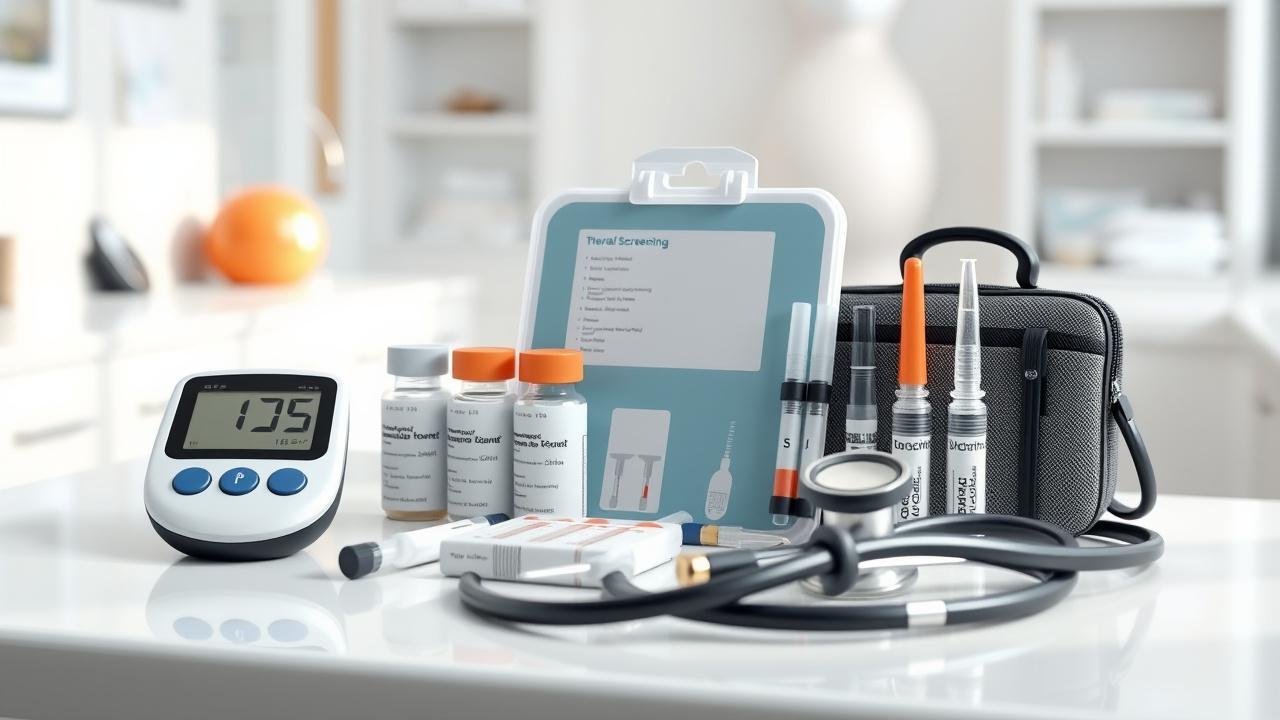Preparing your body for pregnancy is a vital step toward ensuring a healthy and smooth journey to parenthood. This preconception checklist guides you through essential areas—from understanding the importance of preconception health and optimizing nutrition, to managing stress and scheduling key medical screenings. You’ll also learn how to tailor an exercise routine, address environmental influences, build emotional resilience, and track your progress with realistic goals. Each section offers practical advice to help you create a strong foundation for both fertility and overall well-being before conception.
Understanding the Importance of Preconception Health for a Healthy Pregnancy
Understanding the importance of preconception health is fundamental to ensuring a healthy pregnancy and positive outcomes for both mother and baby. This foundational phase involves more than just avoiding harmful habits; it’s about proactively creating optimal conditions in the body to support conception and fetal development. By recognizing how factors like nutrition, lifestyle choices, stress management, and medical screenings interplay, prospective parents can make informed decisions that enhance fertility and reduce risks. For instance, optimizing nutrition and lifestyle choices before conception lays the groundwork for essential nutrient stores, while managing stress improves hormonal balance crucial for pregnancy. Medical screenings identify potential health issues early, and personalized exercise plans boost physical readiness. Additionally, addressing environmental influences and building emotional resilience further solidify this preparatory stage. Together with tracking progress and setting realistic goals, understanding preconception health shapes a comprehensive strategy that empowers individuals to embark on their pregnancy journey with confidence and care.
Optimizing Nutrition and Lifestyle Choices Before Conception

Optimizing nutrition and lifestyle choices before conception lays a vital foundation for a healthy pregnancy by ensuring the body is well-nourished and balanced. This means focusing on a diet rich in essential vitamins, minerals, and folic acid to reduce risks of birth defects and support fertility. Alongside dietary improvements, adopting habits like quitting smoking, moderating alcohol intake, and prioritizing quality sleep strengthens overall health. These changes complement personalized exercise plans discussed later in the blog, which enhance physical readiness for pregnancy. Nutrition also plays a role in managing stress and mental well-being, as proper nourishment can stabilize mood and energy levels during the preconception phase. By integrating medical screenings and vaccinations with these lifestyle adjustments, prospective parents create an optimal environment for conception. Together with emotional preparation and environmental considerations, these strategies form a comprehensive approach to preparing your body for pregnancy outlined throughout the checklist.
Managing Stress and Mental Well-being in the Preconception Phase
Managing stress and mental well-being during the preconception phase is a crucial aspect of preparing your body for pregnancy. High stress levels can disrupt hormonal balance, negatively affecting fertility and overall reproductive health. Prioritizing relaxation techniques, mindfulness practices, or counseling helps create a calm foundation that supports optimal conception outcomes. This emotional groundwork complements the physical preparations discussed in sections like optimizing nutrition and lifestyle choices as well as creating a personalized exercise plan. Mental wellness also ties closely to building a strong support system, ensuring you feel emotionally ready for parenthood while navigating potential environmental or occupational stressors. By integrating stress management into your preconception checklist, alongside essential medical screenings and realistic goal-setting, you enhance both your physical and psychological readiness for pregnancy. Ultimately, nurturing mental well-being strengthens your entire journey toward a healthy conception and successful pregnancy.
Essential Medical Screenings and Vaccinations to Support Preconception Wellness

Essential medical screenings and vaccinations are critical steps in preconception wellness, laying a strong foundation for a healthy pregnancy. These screenings identify underlying health conditions, such as diabetes or thyroid disorders, which can affect fertility and fetal development. Vaccinations protect against infections like rubella and hepatitis B that may pose risks during pregnancy. Integrating these preventive measures complements efforts in optimizing nutrition and lifestyle choices, as well as managing stress and mental well-being before conception. A thorough medical evaluation helps tailor a personalized exercise plan and informs adjustments to environmental or occupational exposures that might impact reproductive health. By addressing medical readiness alongside emotional preparation and building a supportive network, prospective parents can approach conception with confidence. Regular monitoring of health status supports tracking progress and setting realistic goals, ensuring that the body is fully prepared to nurture new life from the very start of this transformative journey.
Creating a Personalized Exercise Plan to Boost Fertility and Overall Health
Designing a personalized exercise plan is a vital step in preparing your body for pregnancy, as it enhances fertility while improving overall health. Tailoring workouts to your fitness level and reproductive goals supports hormonal balance, boosts circulation, and promotes a healthy weight—key factors highlighted alongside nutrition and lifestyle choices in optimizing preconception wellness. Incorporating moderate aerobic activities with strength training can reduce stress hormones, complementing strategies discussed for managing mental well-being during this phase. Regular physical activity also synergizes with essential medical screenings by promoting cardiovascular health and reducing risks identified through these checkups. By considering environmental influences and personal occupational demands, you can adapt your routine safely without exposure to harmful conditions. This individualized approach fosters confidence and emotional readiness, reinforcing the support system necessary for parenthood. Monitoring progress against realistic goals ensures sustained motivation throughout your pregnancy journey preparation, connecting seamlessly with other checklist elements for comprehensive preconception care.
Addressing Environmental and Occupational Factors That Impact Preconception Health

Addressing environmental and occupational factors is a crucial aspect of preparing your body for pregnancy, as harmful exposures can negatively affect fertility and fetal development. Identifying potential risks such as chemicals, radiation, or pollutants at work or home allows you to take proactive steps to minimize contact. This approach complements optimizing nutrition and lifestyle choices by reducing toxic burdens that could undermine health efforts. For instance, avoiding pesticides or industrial solvents aligns with maintaining overall wellness covered in essential medical screenings and vaccinations. Managing stress is also vital since hazardous environments can elevate anxiety levels, impacting mental well-being during the preconception phase. Integrating safer practices into your daily routine supports a personalized exercise plan by promoting energy and resilience. Ultimately, creating a healthier environment strengthens both physical readiness and emotional preparedness for parenthood, reinforcing the importance of tracking progress and setting realistic goals throughout your pregnancy journey.
Building a Strong Support System and Preparing Emotionally for Parenthood
Building a strong support system and preparing emotionally for parenthood is a vital aspect of getting ready for pregnancy, complementing the physical preparations outlined in other sections like optimizing nutrition and managing stress. Emotional readiness involves cultivating resilience and open communication with partners, family, or friends who can offer encouragement throughout the journey. This network not only helps navigate the inevitable ups and downs but also reinforces mental well-being during the preconception phase. When paired with essential medical screenings and personalized exercise plans, emotional preparation ensures a holistic approach to health that addresses both body and mind. Recognizing environmental or occupational stressors alongside emotional challenges allows prospective parents to create a balanced foundation. Ultimately, integrating emotional support with practical steps such as tracking progress and setting realistic goals enhances overall confidence, paving the way for a healthier pregnancy experience.
Tracking Your Progress and Setting Realistic Goals for a Successful Pregnancy Journey
Tracking your progress and setting achievable goals create a meaningful rhythm throughout your pregnancy preparation. This steady approach aligns with nurturing your body, mind, and environment as explored in earlier steps—from mindful nutrition and stress management to personalized fitness and emotional readiness. Embracing realistic milestones helps maintain balance and confidence on this unique path. Remember, every small effort contributes to building a healthy foundation for the journey ahead. At MomDadDispatch.com, you’ll find a compassionate companion that understands the nuances of preparing for parenthood with care and clarity.






